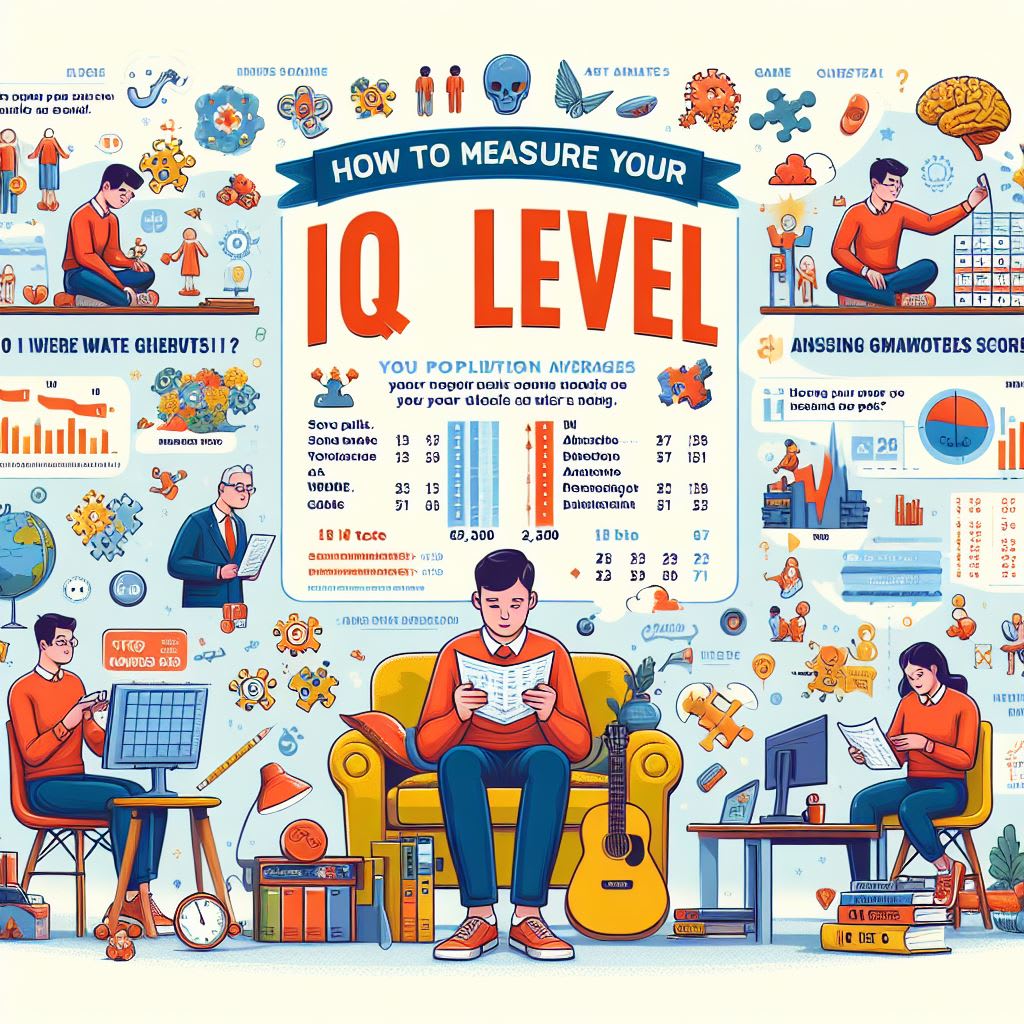
Intelligence Quotient, commonly known as IQ, serves as a benchmark for our cognitive abilities. It is no surprise that you want to figure out where you stand on the IQ scale. IQ tests are designed to measure your cognitive abilities, including analyzing, reasoning, recognizing patterns, and problem-solving. But how do you determine your IQ level? This comprehensive guide seeks to unravel the intricacies of IQ testing, provide a balanced perspective, and help you interpret your IQ scores.
Understanding the Basics of IQ Testing
IQ tests are standardized tests that assess cognitive abilities, with test-takers compared to others of their age group. These tests measure abilities ranging from logical reasoning, spatial intelligence, and verbal comprehension. While there are many online IQ tests available, it's critical to choose a reliable and scientifically validated platform.
Why You Should Be Cautious of Online IQ Tests
Online IQ tests are convenient and save time, but it is crucial to exercise caution in accepting their results. These tests cannot replace the rigour and essence of professional IQ tests administered by licensed psychologists. In addition, some online IQ tests might be fake and misleading. Always look for a trusted and validated IQ test.
Interpreting Your IQ Scores
Once you've completed an IQ test, you will receive an IQ score, often expressed as a percentile score. This score indicates how well you performed compared to individuals of your age group. For example, a score of 80th percentile means that you scored higher than 80% of individuals your age who've taken the test. Scores above 130 are considered high, indicating high cognitive abilities, while scores below 70 suggest lower cognitive functioning.
Understanding the Limitations of IQ Tests
While IQ tests are often used to evaluate cognitive abilities, it's essential to recognize that they have limitations. First, IQ tests only assess cognitive abilities but not other critical skills, such as emotional intelligence, creativity, and practical intelligence. Second, IQ tests do not measure intelligence accurately, and scores may vary each time you take the test. Lastly, cultural and environmental factors may play a role in affecting IQ scores.
The Bell Curve Paradigm in IQ Testing
The bell curve is used to represent IQ scores on a particular scale. In a typical bell curve distribution, the majority of individuals score around average IQ scores, while fewer individuals score higher or lower than average. They have a mean score of 100, with a standard deviation of 15, meaning that around 68% of individuals score between 85 and 115 on any IQ test they take.
Beyond IQ Scores: Understanding Intelligence
While IQ tests offer insight into our cognitive abilities, they are not the only metrics that measure intelligence. Intelligence extends beyond cognitive abilities to include emotional intelligence, creativity, and social skills. Therefore, it's essential to remember that your IQ score is not the only tool to evaluate your intelligence level.
Other Factors that Affect IQ Scores
Environmental and personal factors may affect IQ scores in significant ways. Factors like exposure to toxins, poor nutrition, lack of social interaction, and inadequate medical care may all contribute to lower IQ scores. Other mental health conditions and learning disabilities, such as ADHD, depression, anxiety, and dyslexia, may also impact IQ scores.
Should You Take an IQ Test?
If you're curious about your IQ level and want greater insights into your cognitive abilities, go ahead and take an IQ test. IQ tests can offer direction, identify areas of improvement, and boost your confidence. However, remember to choose a validated online test or seek help from a professional psychologist.
In Conclusion
In conclusion, IQ tests are standardized tests designed to measure your cognitive abilities. While they are useful, IQ scores alone should not be used as the sole metric for measuring intelligence. Environmental and personal factors also play a role in determining IQ scores. As such, it's essential to recognize the limitations of IQ tests while seeking other metrics to supplement intellectual evaluation. Ultimately, taking an IQ test may provide useful insights into your cognitive abilities and may prove useful in some scenarios.
About the Creator
IQ Metrics
IQMetrics.org is a comprehensive platform offering insightful resources on IQ testing, assessments, and understanding intelligence metrics.
http://iqmetrics.org






Comments (1)
Very interesting! Well written and fantastic! 👽